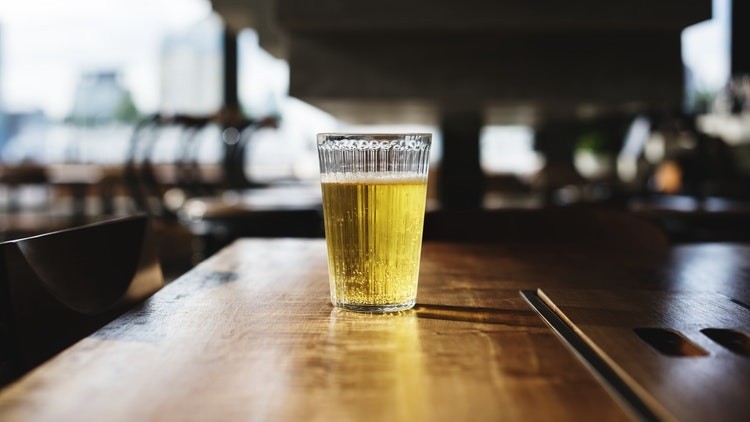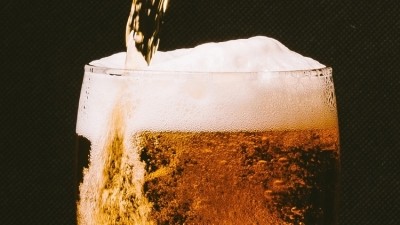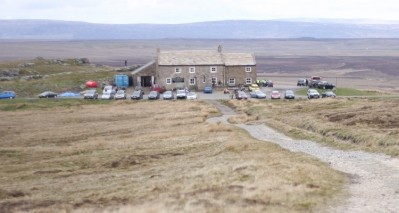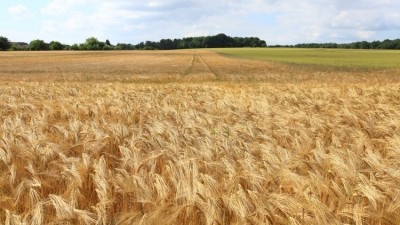Climate change could cause worldwide beer shortage

The study, involving the University of East Anglia (UEA), warned that increasingly widespread and severe drought and heat may cause “substantial decreases in barley yields worldwide”, which would impact the supply used to make beer, and ultimately, result in “dramatic” rises in beer prices and falls in beer consumption.
It revealed that in the UK, beer consumption could drop by between 0.37bn and 1.33bn litres, while the price could as much as double. Consumption in the US could fall by between 1.08bn and 3.48bn litres.
In other countries with smaller total beer consumption, they face huge reductions in their beer consumption.
For example, the volume of beer consumed in Argentina falls by 0.53bn litres, equivalent to a 32% reduction, during more severe climate events.
Event in the least severe climate events, total beer consumption in Argentina and Canada falls by 0.27bn litres (16%) and 0.22bn litres (11%) respectively.
Results from the study revealed potential average yield losses ranging from 3% to 17%, depending on the severity of the conditions. Decreases in the global supply of barley lead to proportionally larger decreases in barley used to make beer.
During the most severe climate events, the results indicate that global beer consumption would decline by 16% or 29bn litres – roughly equal to the total annual beer consumption in the US – and that beer prices would, on average, double.
It also found that even in less severe extreme events, beer consumption drops by 4% and prices rise by 15%.
The findings, published in scientific journal Nature Plants, included weather data from 1981 to 2010, and suggested that total beer consumption falls most under climate change in the countries that consumed the most beer by volume in recent years.
Price of beer
The study, which involved researchers from the UK, China, Mexico and the US, identified extreme climate events and modelled the impacts of these on barley yields in 34 world regions.
They then examined the effects of the resulting barley supply shock on the supply and price of beer in each region under a range of future climate scenarios.
The research outlined that in recent years the beer sector has consumed about one fifth (17%) of global barley production, but this share varies drastically across major beer-producing countries for example from 83% in Brazil to 9% in Australia.
Countries where beer is currently most expensive, such as Australia or Japan, are not necessarily where future price shocks will be the greatest, the research stated.
Changes in the price of beer in a country relates to consumers’ ability and willingness to pay more for beer rather than consume less, such that the largest prices increases are concentrated in relatively affluent and historically beer-loving countries.
The researchers suggest that changes in barley supply due to extreme events will affect the barley available for making beer differently in each region, as the allocation of barley among livestock feed, beer brewing and other uses will depend on region-specific prices and demand flexibilities as different industries seek to maximise profits.
The findings revealed that global and country-level barley supply declines progressively in more severe extreme event years, with the largest mean supply decreasing by 27% to 38% in some European countries such as Belgium, the Czech Republic and Germany.
Cross-cultural appreciation
UEA School of International Development professor of climate change, co-ordinator of the research and UK author Dabo Guan said: “Increasingly research has begun to project the impacts of climate change on world food production, focusing on staple crops such as wheat, maize, soybean and rice.
“However, if adaptation efforts prioritise necessities, climate change may undermine the availability, stability and access to ‘luxury’ goods to a greater extent than staple foods. People’s diet security is equally important to food security in many aspects of society.
“Although some attention has been paid to the potential impacts of climate change on luxury crops such as wine and coffee, the impacts on beer have not been carefully evaluated. A sufficient beer supply may help with the stability of entertainment and communication in society.
“While the effects on beer may seem modest in comparison to many of the other, some life-threatening, impacts of climate change, there is nonetheless something fundamental in the cross-cultural appreciation of beer.
“It may be argued that consuming less beer isn’t itself disastrous and may even have health benefits. Nevertheless, there is little doubt that for millions of people around the world, the climate impacts on beer availability and price will add insult to injury.”
The cost of brewing ingredients is relatively small when compared with taxation and other business costs the industry has to deal with, according to British Beer & Pub Association chief executive Brigid Simmonds.
She said: “This research is right to raise concerns over the impact of global climate change on agriculture and farming. However, the longer-term impacts for barley production are complex and harder to predict.
“It is important to remember the UK is a net exporter of barley, meaning we are less dependent on supply from other global producers. Likewise, the overwhelming majority of barley produced here in the UK is already produced for animal feed, not for brewing beer.
“When it comes to the price of a pint, however, the costs of brewing ingredients account for a relatively small percentage overall.
“Of far more immediate concern are taxation and business costs. We already pay some of the highest tax on beer in Europe and beer duty is set to increase in the Chancellor’s Budget by £107m. This is far more likely to result in UK consumers paying more for their favourite alcoholic beverage!”







